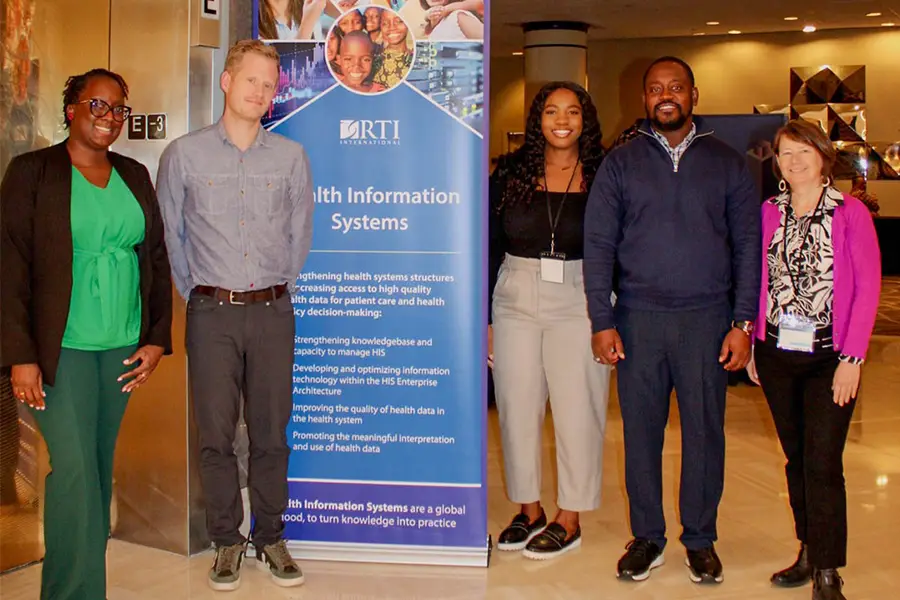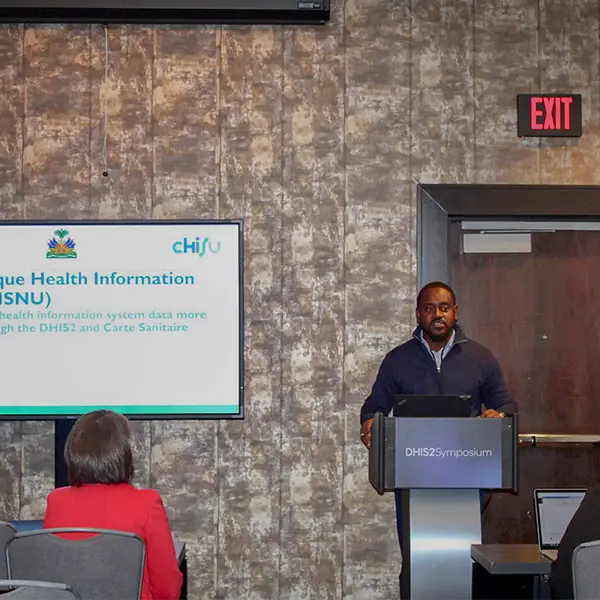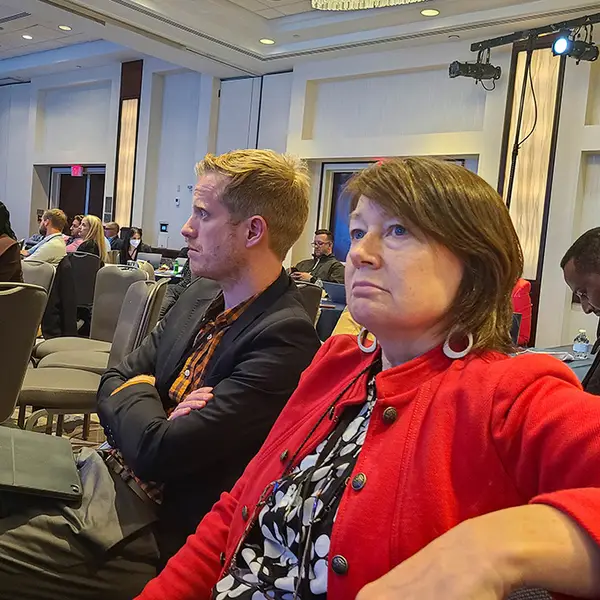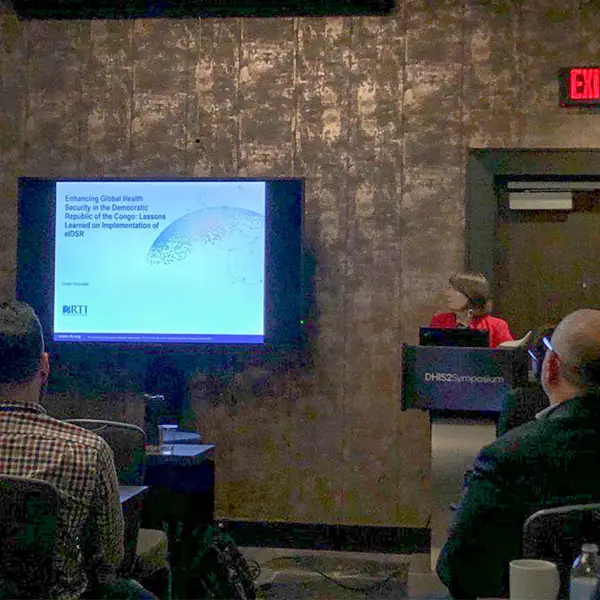Rita Sembajwe, Adam Preston, Shanice Fezeu Meyou, Jhonson Charles, and Eileen Reynolds represent RTI International at the 2022 DHIS2 Symposium in Washington, D.C.
The 8th annual District Health Information Software 2 (DHIS2) Symposium was held from October 19 – 20 in Washington, D.C. and brought together over 350 attendees from 170 unique organizations. The event included a series of sessions and panels where 65 different speakers shared how DHIS2 is being used to solve common challenges in collecting, managing, visualizing, and using data to drive decision making and impact. Throughout these sessions, there were a few key themes that emerged, including, but not limited to, the utilization and impact of DHIS2’s implementation in health and other sectors, gaps in data availability and accuracy, and infrastructure improvements.
Expanding Implementation
In collaboration with U.S. government partners and foreign ministries of health, RTI International has successfully applied DHIS2 to address complex health topics, including malaria, HIV, global health security, family planning, and reproductive health. For example, RTI has utilized DHIS2 to develop an automated monthly bulletin on malaria for stakeholders in Haiti’s Ministry of Health, which was shared during a lightning talk at this year’s DHIS2 Symposium.
The symposium also highlighted how DHIS2 is now being used to address complex global issues outside of health, including disaster relief, climate, agriculture, and education. In particular, DHIS2 for Education offers a customizable Education Management Information System (EMIS) solution allowing countries to leverage their existing DHIS2 capacity and expertise.
Enhancing Data Quality
Another consistent theme across the event were the challenges posed by gaps in the availability and accuracy of data and how DHIS2 works with app or external software to address them. Presenters discussed how the unavailability of meta data, such as indicator definitions, and uncorrected data, not only reduced data quality, but can also be misleading and cause reporting bias. Advanced features that allow for more robust data analyses would increase usability across a variety of case types. Data exchange with other applications, such as statistical software at the onset of a project and investing in data interpretation training, alleviates some of the challenges surrounding data accuracy.
Ultimately, the use of external, interactive statistical applications that connect to DHIS2 seem to help enhance DHIS2 data reporting and analysis performance, allowing for more accurate interpretation and measured intervention effectiveness.
Optimization
A consistent focus on improving the infrastructure of DHIS2 is helping to optimize its ability to address some of the world’s most complex problems. At the symposium, the University of Oslo, DHIS2’s development team, presented the latest functionalities of DHIS2, including a new data entry app, Google Earth population data import, performance improvements in Tracker, and mobile analytics. These enhancements have been made possible as a result of dedicated donors, DHIS2 community developers and implementers, collaborative development efforts, open-source project governance principles, shared extensions, training, and continuous feedback.
RTI at the DHIS2 Symposium
RTI is proud to have been one of the two Gold Sponsors of the 2022 DHIS2 Symposium. Our team enjoyed interacting with fellow members of the DHIS2 community over the course of the event at our booth. We also hosted a session focused on utilizing digital health solutions to generate data for action. In the session, we highlighted our work in helping to detect disease outbreaks in the Democratic Republic of Congo using DHIS2 for electronic Integrated Disease Surveillance and Response system (eIDSR) and develop a facility registry (with geolocated health data) in Haiti to track functional and structural health facility services.
At RTI International, we are dedicated to supporting DHIS2 interoperability and deployment efforts, which enables the efficient collecting, sharing, analyzing, disseminating, and use of health-related data to improve health care policy, services, and outcomes. To learn more about how RTI uses DHIS2 to strengthen health systems, please contact us.







